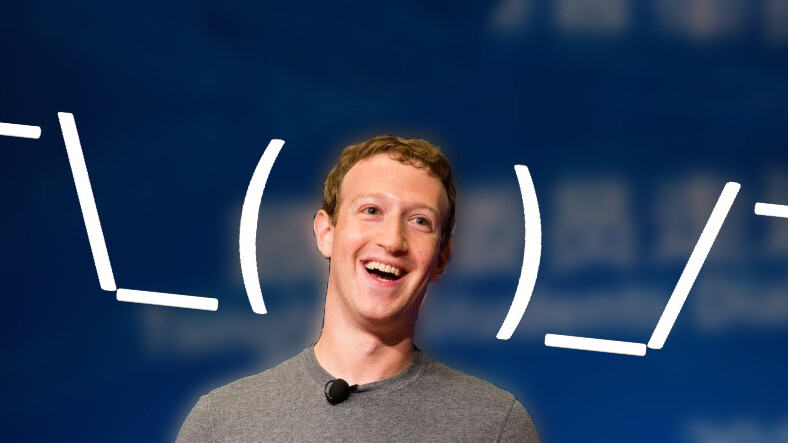The bad headlines continue to stack up for Facebook this year: from the Cambridge Analytica scandal, to the New York Times report that Facebook gave Apple, Samsung, and other mobile device makers access to its users personal data without permission, to the revelation that the firm routinely gives user information and preferences to several Chinese telecommunications firms, to last week’s security breach in which hackers took control of 50 million user accounts as well as any third-party sites those users logged into via Facebook. WIRED has called the sophisticated attack an “internet-wide failure” with complex and far-reaching consequences.
Surely, this is enough for Facebook to stop selling our personal information. Enough is enough, right? Don’t count on it. The practice of collecting personal data and then selling it to advertisers and analytics firms is not going to end because that’s been their business model from the outset.
Only now, are we realizing how impactful it is to us when our personal data is sold to people and organizations who don’t have our best interests in mind. As long as we’re enjoying the fruits of a free internet that’s fundamentally being paid for by advertising, products like Facebook, Twitter, and other “free” sites are going to continue to do things that don’t always align with our interests.
The question is, what are we going to do about it?
Personal data has become incredibly valuable. As AI, voice recognition software, robotics, and other technologies become more sophisticated, we have the ability to create much more data around our behavior. And the new generation of apps need that data as fuel.
We can take a close look at people’s diets, analyze their DNA, or record and transcribe conversations. Imagine being able to search every conversation you’ve ever had. Why should advertising and companies like Facebook and Amazon be reaping the benefits of this information? And btw – no, getting “relevant” advertising in our social feeds is not a benefit.
That was the question one Australian man had when he requested all his data from Facebook and then tried to auction it to the highest bidder on eBay (the bidding reached $540 before eBay ended the sale). The idea is not much more than a stunt, but his point is well taken: Our personal data belongs to us, not Facebook.
Unfortunately, most companies (and some governments) view it just the opposite; they’d like us to believe that they own our personal information. The new GDPR online privacy laws in Europe are an attempt to address this disconnect and claw back ownership of people’s personal information. It’s a step in the right direction, but we have a long way to go.
Most people aren’t even aware of the data they’re giving away or the extent to which they’re being tracked. Retail outlets, phone companies, and governments are already gathering people’s “dark data”— our “gait signatures” captured by motion sensors, our shopping patterns filmed by CCTVs, or our locations tracked by our cars. China has already mobilized this technology to create a scary state of surveillance.
The reality is that there’s a tension with the many new technologies coming online and the ability to analyze vast numbers of data points. We can use them to instrument new types of systems to predict behavior and make our lives better, or they can be used to exploit and target us in ways that do us no good whatsoever.
We need more options
Here’s the big risk at hand — at some point, we will stop trusting companies like Facebook completely. We’ll realize that the bargain we’ve been asked to make — I give you my personal data for some feature or app in exchange for you using that data to sell advertising — does not align with our values.
We’ll realize that we are only fuel for an advertising behemoth that wants to make money, or worse, off our data. It’s only a matter of time before the internet advertising model stalls out completely.
We aren’t stuck with this model. If there’s a market for our personal information, we ought to be able to create business models that have nothing to do with advertising.
For example, if advertisers or phone manufacturers or Chinese electronics companies or anyone who needs personal data for research or sales, why shouldn’t they pay us directly? If data has value, it can be designed as a transactional asset. It’s an opportunity for a startup to manage this value and the transaction — a Stripe for my personal data.
Or what if we could pay for products and services with data? Right now, we pay for access to online services like Facebook with our privacy, but there is a potential future where that access can be paid for by a balance of data and money. I might choose to pay entirely in cash. Others might give over their data in careful increments. It’s not a new idea but it’s now time to talk about it again.
Buy, buy, buy
Before we go too far down this road, we should pause to remember that the internet should not be purely commercial. In fact, part of the backlash to the advertising model of the internet is the singular focus advertisers have on getting us to buy things.
We’ve been trained to think that any free service will ultimately result in a pitch for our money. Need to find your way home with a map? Here’s something you can buy. Need to better understand your health? Here’s something you can buy. Want to share your life with your distant friends and family? Here’s something you can buy!
Software experiences cannot keep getting optimized around the idea of “opportunities to buy something” without incurring a fundamental backlash in people. Computing has much more to offer humanity than optimized shopping, and we instinctively understand that despite the current trend. Right now, there’s a profound disconnect with today’s advertising-supported experiences.
The bottom line is that we should no longer allow ourselves to be the product of the internet. Our data belongs to us and if there’s a market for it, we should start benefiting from it. Advertisers and the companies funded by advertising need to get ahead of this issue.
Get the TNW newsletter
Get the most important tech news in your inbox each week.





